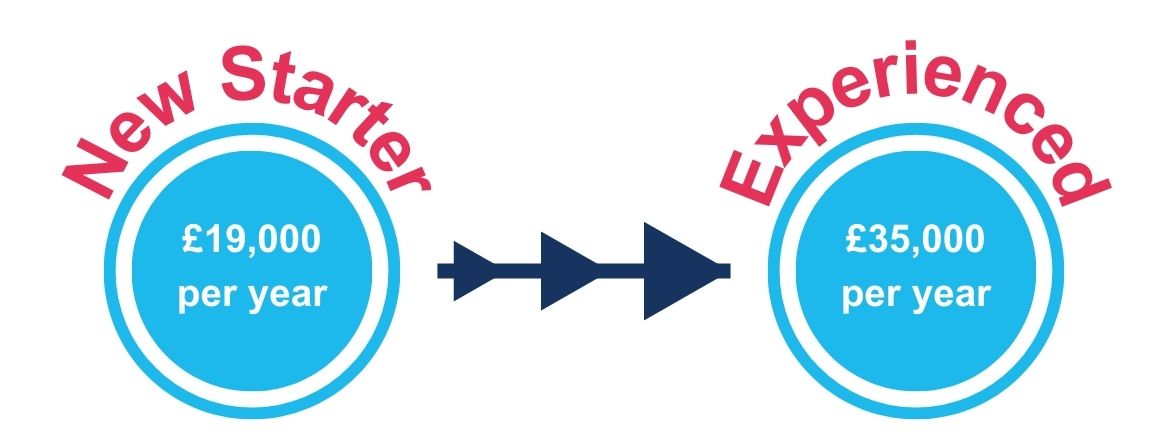As a Children, Young People and Family Manager you will ensure direction, alignment and commitment within your own practice, your team(s), your organisation and across partnerships to help children, young people and families aspire to do their best and achieve sustainable change. You will build teams, manage resources and lead new approaches to working practices that deliver improved outcomes and put the child, young person or family at the centre of practice.
You may work either as a Manager in Children's Residential Care or as a Children, Young People and Families Manager in the Community in a range of settings in local authorities, within health organisations, educational and early years settings or children's centres, as well as a wide range of private voluntary and community organisations. You could be solely responsible for the management of a team or service, or be part of a management team. To deliver effectively on a wide range of outcomes you will work on a multi agency basis with professionals from a wide range of backgrounds, as well as team leaders and managers from your own organisation.
With a focus on excellence in practice and improved performance, you will encourage Children, Young People and Family Practitioners to gain the skills, knowledge, attitudes and behaviours that will enable them to actively support each child, young person, young adult and family to achieve their potential. You will inform and improve practice by acting on research and new developments into how the needs of children, young people and families are best met. You will model the behaviours that encourage reflective practice, professional confidence and humility. You will challenge and support practitioners and ensure their practice is safe. You will develop and lead an ethos that will enable and inspire practitioners to make a real difference to the lives of children, young people and families.
Children, Young People and Family Managers will need to supplement the CORE standard programme with specialist skills and knowledge, by choosing ONE of the following options:
OPTION 1: Manager in Children's Residential Care
1a. Plays a leading role in developing the ethos of the home and creates a sense of purpose and clarity for the long term care and support of children and young people in residential care
OPTION 2: Children, Young People and Families Manager within the Community
2a. Creates an environment that promotes partnership working within a specific working context (e.g. early years, youth, youth justice, family work, special educational needs and disability etc.) and builds consensus and support for improving outcomes together
Course requirements
- Apprentices without Level 2 English and maths will need to achieve this level prior to taking their end-point assessment.
- A British Sign Language (BSL) qualification is an alternative to the English qualification for those whose primary language is BSL
- Undertake the Disclosure and Barring Service process and provide the result
Behaviours - the values and behaviours expected of a Children, Young People and Family Manager
Care: Respecting and valuing practitioners, encouraging and enabling them to deliver excellent practice
Compassion: Consideration and concern, combined with robust challenge and support
Courage: Having honest conversations and encouraging practitioners to offer their own solutions to improving practice
Communication: Building relationships with practitioners, peers and partner organisations
Competence: Knowing the business, knowing what good practice looks like in others and having a relentless focus on delivering improved outcomes
Commitment: Demonstrating a strong moral purpose, modelling the ethos and building the skills of others and retaining and maintaining and own practice skills through effective CPD
- The principles and practice of supervision with their staff
- The theories and up-to-date research and best practice that underpin practice decision making
- The working practices surrounding legislation, national and local solutions for safeguarding and risk management of children, young people and families
- A healthy, safe and stimulating environment that fulfils health & safety legislation and requirements
- The safeguarding requirements contained within mandatory local safeguarding training or nationally accredited equivalent
- The principles and practice of statutory frameworks, standards, guidance and Codes of Practice
- The quality assurance of health and social care in line with OFSTED, CQC and other regulatory bodies
- Approaches to developing and implementing improvement, including use of data
- The theories of intervention that meet the needs of children, young people and adults within the family
- The practice and principles of resource management
- How to create engagement and innovation in the development of practice
- The commissioning cycle and its application
- Inter-agency and multi-agency work and its role in ensuring positive outcomes
- Techniques to influence, persuade and negotiate with others
- Principles of: reflective practice; how people learn; effective continuing professional development
- Academic research, evidence-based data, policy developments, practice developments
- Maintains and develops a leadership style that sets the ethos, aims and approach to the work
- Manages the application of professional judgement, standards and codes of practice
- Creates a strong sense of team purpose
- Models an ethos that actively promotes equality, resilience, dignity and respects diversity and inclusion
- Actively seeks the views of others
- Develops and delivers good quality supervision practice and decision making
- Demonstrates evidence based practice and models the effective use of up to date research and theories
- Identifies and manages risk
- Monitors, evaluates and improves the working environment to ensure it is safe
- Sets clear, measurable objectives
- Uses data to evaluate the effectiveness of outcomes
- Develops, facilitates and leads changes in working practices that deliver improved outcomes
- Actively encourages the participation of children, young people and families in service improvement
- Manages the quality assurance of the service provided and proposes improvements
- Manages and deploys total resource (e.g. people, finance, IT property) to maximise outcomes
- Mobilises collective action across service boundaries and within the community to manage resources
- Commissions and contract manages external providers
- Collaborates with partner agencies and resolves complex issues to achieve best outcomes
- Builds an ethos of learning and continuous improvement across partner organisations
- Evaluates practice of team members
- Assesses learning styles of self and team members and identifies development opportunities
- Listens to, challenges and supports practitioners
- Engages in reflective practice and develops a learning culture across the team
Assessment Methods
This is a knowledge based course with practical aspects that will need to be demonstrated.
End-Point Assessment
- A Situational Judgement Test
- A competence interview informed by submission of a portfolio
Assessment Methods
Upon the successful completion of this apprenticeship, please speak to our curriculum team for further progression options.




